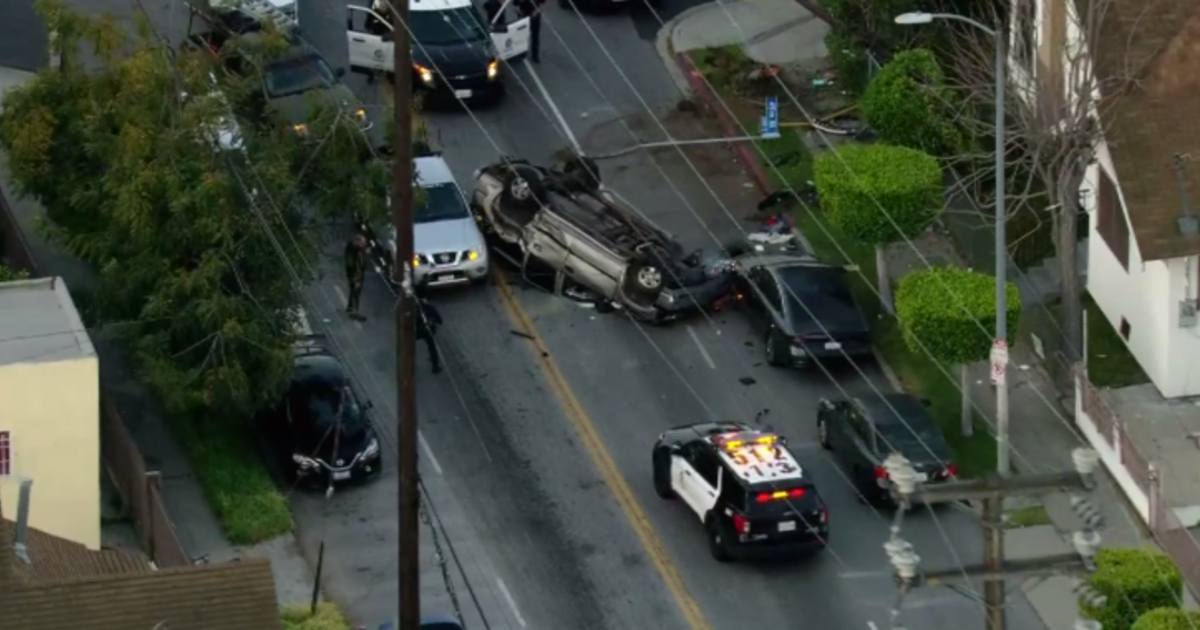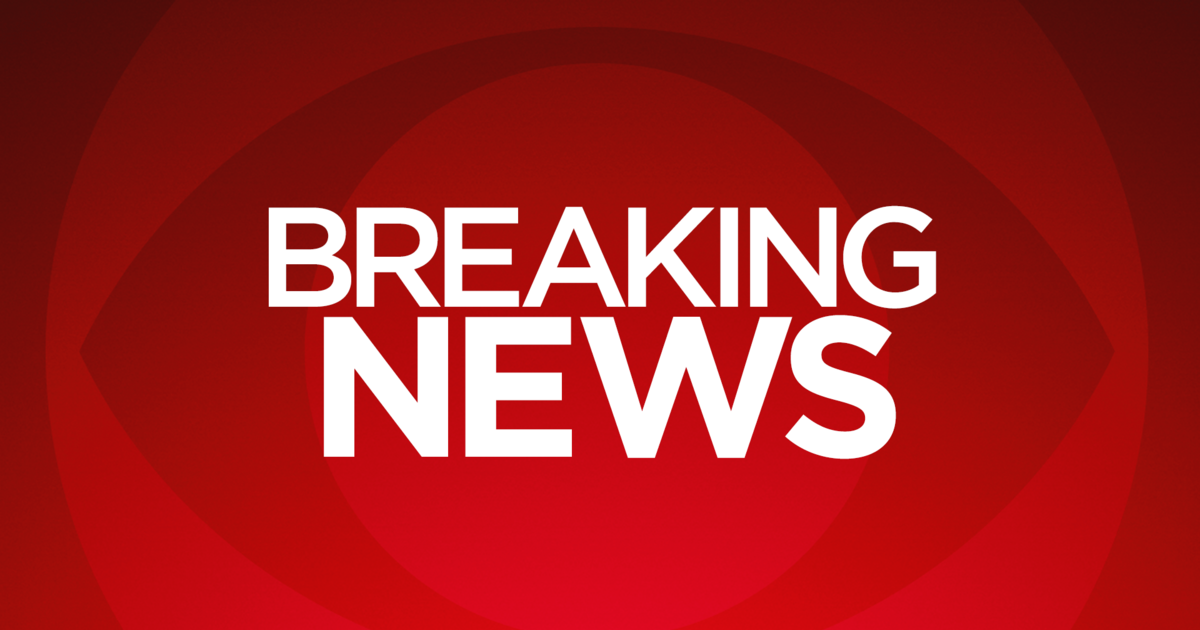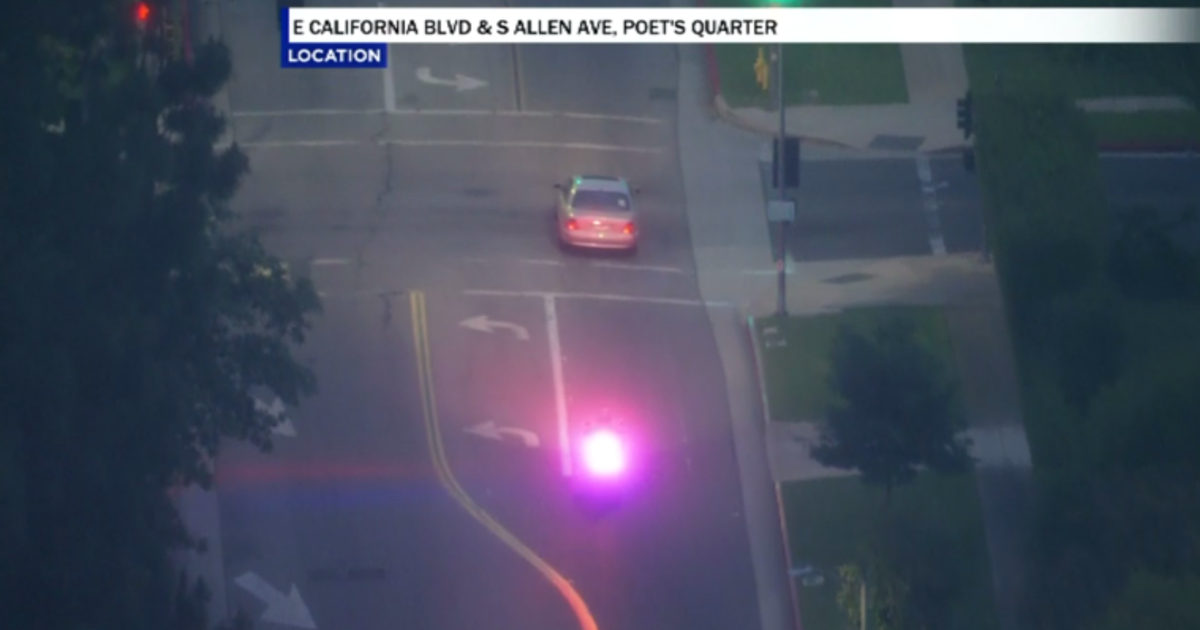President Trump Withdraws US From Iran Nuclear Deal, Resumes Sanctions
WASHINGTON (CBS News) — President Trump announced Tuesday his much-anticipated decision to "withdraw" from the Iran nuclear deal, in keeping with a longtime campaign promise.
The president claimed there is Israeli intelligence proving Iran is not in compliance with the agreement, and said he fears the 2015 deal will allow the Iranian regime to amass nuclear weapons.
"In just a short period of time, the world's leading state sponsor of terror will be on the cusp of acquiring the world's most dangerous weapons," Mr. Trump said from the White House Diplomatic Room. "Therefore, I am announcing today that the United States will withdraw from the Iran nuclear deal."
"We will be instituting the highest level of economic sanction," Mr. Trump added. "Any nation that helps Iran in its quest for nuclear weapons could also be strongly sanctioned by the United States."
What that means practically speaking, is the U.S. will not renew the sanctions waiver and will no longer participate in the Iran nuclear deal, CBS News' Ed O'Keefe and Rebecca Kaplan have reported. According to the U.S. Treasury, its Office of Foreign Assets control is taking action immediately to implement Mr. Trump's decision. Sanctions will have 90-day and 180-day wind-down periods, at the end of which relevant, previous sanctions the U.S. had waived will be reinstated.
"America will not be held hostage to nuclear blackmail," Mr. Trump said. "We will not allow American cities to be threatened with destruction. And we will not allow a regime that chants 'Death to America' to gain access to the most deadly weapons on earth."
U.S. intelligence has verified that the deal has been an effective arms control deal that has kept Iran's nuclear program frozen for three years, CBS News "Face the Nation" host Margaret Brennan has noted. Mr. Trump is delivering on another campaign promise, says Brennan, but one which is arguably far more consequential than any other deal he's torn up.
Mr. Trump did not answer shouted questions from a reporter in the room about how leaving the deal will make the U.S. safer.
The Iran nuclear deal, or Joint Comprehensive Plan of Action (JCPOA) was forged in 2015 during the Obama administration under then-Secretary of State John Kerry, as a multi-nation effort to keep Iran's nuclear program at bay.
"In theory, the so-called "Iran deal" was supposed to protect the United States and our allies from the lunacy of an Iranian nuclear bomb, a weapon that will only endanger the survival of the Iranian regime," Mr. Trump said Tuesday. "In fact, the deal allowed Iran to continue enriching uranium and, over time, reach the brink of a nuclear breakout."
The United Kingdom, France and Germany were all unable to persuade the Trump administration to broker a side deal that would satisfy the U.S. enough to keep it a party to the 2015 agreement. Shortly before the president was to announce his decision, the leaders of those countries, U.K. Prime Minister Theresa May, French President Emmanuel Macron and German Chancellor Angela Merkel were on a call to discuss their response to Mr. Trump's announcement, CBS News; Kylie Atwood reports, citing European diplomatic sources. The response from the international community was swift.
French President Emmanuel Macron tweeted that France, Germany and the U.K. "regret" Mr. Trump's' decision, saying the "nuclear nonproliferation regime is at stake."
Former President Barack Obama and former Secretary of State John Kerry had opinions, too. Obama's office issued a lengthy statement.
"Without the JCPOA, the United States could eventually be left with a losing choice between a nuclear-armed Iran or another war in the Middle East," Obama said in his statement. "We all know the dangers of Iran obtaining a nuclear weapon. It could embolden an already dangerous regime; threaten our friends with destruction; pose unacceptable dangers to America's own security; and trigger an arms race in the world's most dangerous region. If the constraints on Iran's nuclear program under the JCPOA are lost, we could be hastening the day when we are faced with the choice between living with that threat, or going to war to prevent it."
Kerry said Mr. Trump's decision "weakens" U.S. security.
But Mr. Trump insisted Tuesday America will not be held "hostage" by such a deal.
"America will not be held hostage to nuclear blackmail," the president said. "We will not allow American cities to be threatened with destruction and we will not allow a regime that chants 'death to America' to gain access to the most deadly weapons on Earth."
Mr. Trump spent much of the 2016 campaign and early days of his presidency slamming the 2015 nuclear pact as "a mess" and "badly negotiated." That sentiment did well with his supporters.
© 2018 CBS Interactive Inc. All Rights Reserved. This material may not be published, broadcast, rewritten, or redistributed.



